Best & Worst Specialty Scuba Classes
Specialty scuba classes are designed to build specific skills beyond your Open Water certification. Some are valuable and practical, while others may not be worth your time or money. Here’s how to choose wisely.
Which Classes Should You Take?
If you're looking for the best bang for your buck, focus on these first:
- Nitrox – Reduces DCS risk at recreational depths.
- Navigation – Helps you become more self-reliant in the water.
- Deep – You will likely need it if you ever want the Advanced Open Water certification.
- O2 & CPR – Because everyone should be able to help a buddy.
- Rescue Diver – One of the most useful courses you can take.
- Drysuit – Only if you plan to dive cold water regularly.
Class Recommendations
| Category | Class |
|---|---|
| Recommended | Nitrox, Night Diving, Navigation, Deep Diving, Oxygen Provider, CPR / AED, Science of Diving, Rescue Diver, Drysuit |
| Maybe Take It | Wreck, Search & Recovery, DPV, Solo, Ice Diver, Closed Circuit Rebreather |
| Skip These * Could be great if you find an exceptional instructor, but unlikely | Equipment Specialist, Advanced Buoyancy, Altitude, Boat Diving, Computer Diving, Photo & Video, Drift Diving, Misc Ecology Programs |
Class Breakdown
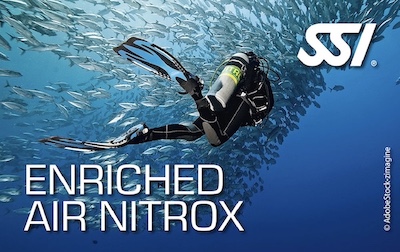
Nitrox
Learn to use enriched air to extend no-decompression limits.
Pros: Widely available, improves your safety margins.Cons: Not necessary for all diving locations.
Verdict: Highly recommended.
Best Taken After: Anytime
Advanced Skills: No
Taken: Yes

Night & Limited Visibility
Covers techniques for diving in darkness or murky water.
Pros: Helps with confidence in low-visibility dives.Cons: Flashlight use is the main takeaway.
Verdict: Good if you plan to night dive often.
Best Taken After: A few dives
Advanced Skills: No
Taken: Yes

Navigation
Teaches compass use and underwater navigation techniques.
Pros: Helps you become a more independent diver.Cons: Compass skills can sometimes be self-taught.
Verdict: Very useful.
Best Taken After: A few dives
Advanced Skills: No
Taken: Yes

Deep Diving
Teaches gas management and safety at depths beyond 60 feet.
Pros: Usually required for AOW certification.Cons: Do not really learn much.
Verdict: Worth considering.
Best Taken After: 20+ dives
Advanced Skills: No
Taken: Yes

Oxygen Provider
Covers how to administer emergency oxygen.
Pros: Essential for emergency preparedness.Cons: Not needed unless you plan to dive with emergency response capability.
Verdict: Good for rescue divers.
Best Taken After: Anytime
Advanced Skills: No
Taken: Yes

CPR / AED
Teaches CPR techniques and AED operation.
Pros: Critical life-saving skill.Cons: Not dive-specific, but useful.
Verdict: Take it.
Best Taken After: Anytime
Advanced Skills: No
Taken: Yes

Rescue Diver
Covers self-rescue, assisting distressed divers, and emergency scenarios.
Pros: Teaches real-world emergency response and diver recovery.Cons: Physically demanding for some.
Verdict: A must-take course.
Best Taken After: 50+ dives
Advanced Skills: Yes
Taken: Yes

Science of Diving
Comprehensive study of diving physics, physiology, and decompression theory.
Pros: Deep dive into dive science and theory.Cons: Not a hands-on course.
Verdict: Highly recommended.
Best Taken After: Anytime
Advanced Skills: No
Taken: Yes
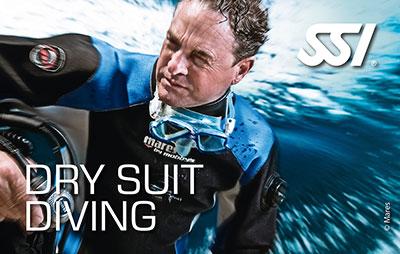
Drysuit
Teaches drysuit buoyancy control and thermal management.
Pros: Essential for cold-water diving safety.Cons: Requires drysuit ownership or rental.
Verdict: Take it if diving cold water.
Best Taken After: A few dives
Advanced Skills: No
Taken: Yes
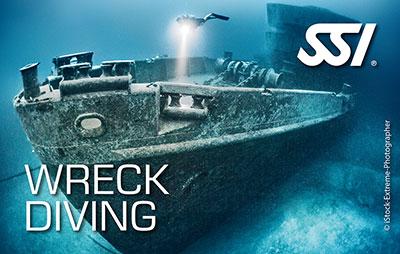
Wreck (Limited Penetration)
Teaches basic wreck penetration and line handling.
Pros: Intro to wreck diving and reel use.Cons: Does not cover full wreck penetration.
Verdict: Great if you want to dive wrecks.
Best Taken After: 50+ dives
Advanced Skills: Yes
Taken: Yes
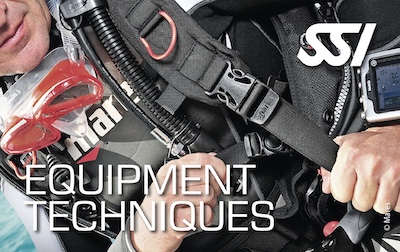
Equipment Specialist
Covers basic maintenance and troubleshooting of scuba gear.
Pros: Covers gear maintenance and repair.Cons: Mostly repeats Open Water material.
Verdict: Not necessary.
Best Taken After: Anytime
Advanced Skills: No
Taken: Yes

Search & Recovery
Covers search patterns and lift bag use.
Pros: Great for finding lost objects and underwater work.Cons: Limited practical applications for many divers.
Verdict: Worth considering.
Best Taken After: A few dives
Advanced Skills: No
Taken: No
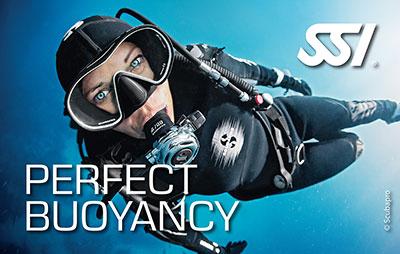
Advanced or Peak Performance Buoyancy
Focuses on trim, weighting, and precision buoyancy control.
Pros: Improves control and air consumption.Cons: Depends heavily on instructor skill.
Verdict: Consider GUE Fundies instead.
Best Taken After: 20+ dives
Advanced Skills: No
Taken: No

Altitude Diving
Covers how altitude affects dive tables and decompression.
Pros: Explains pressure changes at altitude.Cons: Rarely needed for most divers.
Verdict: Skip unless diving in altitude frequently.
Best Taken After: Anytime
Advanced Skills: No
Taken: No

Boat Diving
Teaches proper boat diving procedures.
Pros: Covers boat entry/exit techniques.Cons: You learn most of this on your first boat dive.
Verdict: Skip and read online resources instead.
Best Taken After: Anytime
Advanced Skills: No
Taken: No

Computer Diving
Basic instruction on using dive computers.
Pros: Teaches dive computer functions.Cons: Better to read the manual.
Verdict: Not worth the cost.
Best Taken After: Anytime
Advanced Skills: No
Taken: No

Photo & Video
Covers fundamental techniques for underwater imaging.
Pros: Basic underwater photography skills.Cons: Better learned through free online resources.
Verdict: Skip unless taking from a real photographer.
Best Taken After: Anytime
Advanced Skills: No
Taken: No

Drift Diving
Teaches how to manage currents and drift diving techniques.
Pros: Covers drift diving techniques.Cons: Mostly common sense skills.
Verdict: Not necessary.
Best Taken After: Anytime
Advanced Skills: No
Taken: No

Various Ecology Programs
Overview of marine conservation and environmental awareness.
Pros: Covers marine conservation topics.Cons: Easily learned for free online.
Verdict: Skip and watch YouTube instead.
Best Taken After: Anytime
Advanced Skills: No
Taken: No
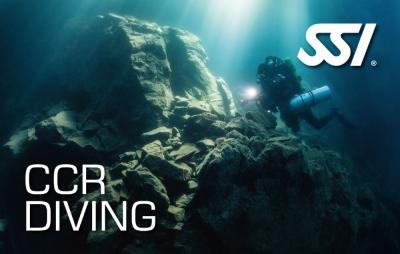
Closed Circuit Rebreather
Teaches rebreather function, maintenance, and failure procedures.
Pros: Expands dive time significantly.Cons: Extremely complex and costly.
Verdict: Not for recreational divers.
Best Taken After: Extensive experience / 200+ dives
Advanced Skills: Yes
Taken: No

Solo / Self-Reliant Diver
Focuses on diving without a buddy and redundancy planning.
Pros: Teaches redundancy and self-sufficiency.Cons: Not suitable for all divers.
Verdict: Interesting but situational.
Best Taken After: Rescue Diver
Advanced Skills: Yes
Taken: No

Ice Diving
Covers under-ice emergency procedures and team coordination.
Pros: Teaches under-ice diving safety.Cons: Very specialized and requires specific gear.
Verdict: Take only if ice diving is your goal.
Best Taken After: Drysuit
Advanced Skills: Yes
Taken: No
What About Advanced Open Water?
Advanced Open Water (AOW) is not a class, it's a certification level. It’s often marketed as the next step after Open Water, but it mainly consists of short 'intro' dives in different specialties. Instead of taking AOW, it's better to take full specialty classes that actually teach you the skills in depth.